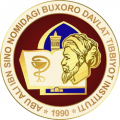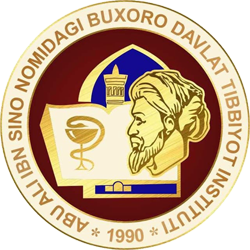Joint educational programs with foreign universities
14.12.2021 2021-12-14 11:17Joint educational programs with foreign universities

General Medicine (In cooperation with the Russian National Research Medical University named after N.I. Pirogov)
General Medicine is one of the most competitive courses in Uzbekistan for admission, but every year hundreds of foreign students are admitted to a medical school. If your grades are of the highest standard, and if you can prove that you are determined to study and work in this area, then applying for General Medicine is for you. This is another opportunity where you can gain experience in both the Uzbek and Russian education systems.
“General Medicine” is one of the most popular specialties in medical universities and at the faculties of medicine. Most doctors first study in “Medicine”, and then receive postgraduate education in order to become narrow specialists.
The standards for admission to any medical school are strict and demanding. Admission interviews can be difficult and students should be expected to ask questions about motivation, previous work, personal interests, and will be able to provide proof of all previous accomplishments, including relevant work experience.
|
Course name |
General Medicine |
|
Course level |
Undergraduate |
|
Course type |
Diploma program |
|
Course duration |
3 years at BSMI + 3 years in the Russian Federation |
|
Heading mode |
Permanent |
|
Selection Process |
Entrance Exams |

IT-medic (medical bio-informatics) (Joint educational program with the Business School of Poland Louis University, Republic of Poland)
IT medic – also called medical bio-informatics, is the administration, creation, management, or oversight of health systems, public health systems, hospitals, entire hospital networks, or other healthcare facilities.
The responsibilities of these professionals include ensuring the smooth operation of individual departments, creating the appropriate system support for medical equipment, the efficiency of medical equipment, achieving specific results and efficient use of resources, as well as many other responsibilities. At the end of the general course, specialists can work in the profession of honey. diagnostics. Upon completion of the master’s degree in a narrow specialty, graduates can work in the field of Cybernetics, Programming, as well as Robotics.
|
Course Title |
Medical Bioinformatics |
|
Course level |
Undergraduate |
|
Course type |
Diploma program |
|
Course duration |
2 years at BSMI + 2 years in the Republic of Poland |
|
Heading mode |
Permanent |
|
Selection Process |
Entrance Exams |

General Medicine (Together with Dagestan State Medical University)
General medicine is a direction of education in the field of health care, which covers a set of tools, methods, techniques of human activity aimed at developing the medical field, determining prospects, professional skills, and the ability to act.
General medicine is one of the most prestigious areas of medicine
Purpose of the curriculum
To provide students with in-depth theoretical and practical knowledge and skills in the fundamental, preclinical and clinical sciences of medicine. Training of general practitioners.
|
Course name |
General Medicine |
|
Course level |
Undergraduate |
|
Course type |
Diploma program |
|
Duration of the course |
3 years at BSMI + 3 years in the Republic of Dagestan |
|
Heading mode |
Permanent |
|
Selection Process |
Entrance Exams |

Pediatrics (Together with St. Petersburg State Pediatric Medical University)
Pediatrics is a branch of medicine that deals with the health and care of infants, children and adolescents from birth to 18 years of age. The word “pediatrics” means “healer of children”; they are derived from two Greek words: (pais = child) and (iatros = physician or healer). Pediatrics is a relatively new medical specialty that developed only in the middle of the 19th century. A pediatrician is a pediatrician who provides not only medical care to acutely or chronically ill children, but also preventive medical services to healthy children. The pediatrician monitors the physical, mental and emotional well-being of children in their care at all stages of development, both in the state of illness and in health. The goals of pediatric research are to reduce infant and child mortality, control the spread of infectious diseases, promote healthy lifestyles for a long, disease-free life, and help alleviate the problems of children and adolescents with chronic diseases.
|
Course name |
Pediatrics |
|
Course level |
Undergraduate |
|
Course type |
Diploma program |
|
Course duration |
3 years at BSMI + 3 years in the Russian Federation |
|
Heading mode |
Permanent |
|
Selection Process |
Entrance Exams |

Clinical Psychology (In collaboration with Orenburg State Medical University, RF Orenburg)
Clinical psychology is a branch of psychology associated with the practical application of research methodologies and research results in the diagnosis and treatment of mental disorders.
Clinical psychologists classify their core activities into three main categories: assessment (including diagnosis), treatment, and research. In assessment, clinical psychologists conduct and interpret psychological tests, either to assess the relative intelligence or other abilities of individuals, or to identify mental characteristics that will help diagnose a particular mental disorder. An interview, in which a psychologist notes questions and interacts with a patient, is another diagnostic tool.
For therapeutic purposes, a clinical psychologist can use any of several types of psychotherapy. Many clinical psychologists take an eclectic approach, using a combination of techniques that are appropriate for the client. Clinical psychologists may specialize in behavioral therapy, group therapy, family therapy, or psychoanalysis, among others.
|
Course name |
Clinical psychology |
|
Course level |
Undergraduate |
|
Course type |
Diploma program |
|
Course duration |
3 years in BSMI + 2.6 years in the Russian Federation |
|
Heading mode |
On an ongoing basis |
|
Selection Process |
Entrance exams |

Clinical Psychology (In collaboration with Orenburg State Medical University, RF Orenburg)
Clinical psychology is a branch of psychology associated with the practical application of research methodologies and research results in the diagnosis and treatment of mental disorders.
Clinical psychologists classify their core activities into three main categories: assessment (including diagnosis), treatment, and research. In assessment, clinical psychologists conduct and interpret psychological tests, either to assess the relative intelligence or other abilities of individuals, or to identify mental characteristics that will help diagnose a particular mental disorder. An interview, in which a psychologist notes questions and interacts with a patient, is another diagnostic tool.
For therapeutic purposes, a clinical psychologist can use any of several types of psychotherapy. Many clinical psychologists take an eclectic approach, using a combination of techniques that are appropriate for the client. Clinical psychologists may specialize in behavioral therapy, group therapy, family therapy, or psychoanalysis, among others.
|
Course name |
Clinical psychology |
|
Course level |
Undergraduate |
|
Course type |
Diploma program |
|
Course duration |
3 years in BSMI + 2.6 years in the Russian Federation |
|
Heading mode |
On an ongoing basis |
|
Selection Process |
Entrance exams |

Biotechnology (Together with Kursk State Medical University, RF Kursk)
This direction of the undergraduate program assumes further education in the magistracy. Therefore, at the first stage of education, students receive only basic knowledge. Within the framework of natural science training, they study biology, chemistry (organic and inorganic), and ecology. Among the basic disciplines of the direction are engineering graphics, applied mechanics, the basics of biotechnology, processes and devices of biotechnology, life safety. They study devices and computer systems, get acquainted with the maintenance of installations. Practice takes place in laboratories and research institutes.
Bio technologists work in scientific and research centers, laboratories, clinics, pharmaceutical companies. They research, obtain and use enzymes and viruses of various origins. They study microorganisms, cell cultures of animals and plants. They think over and develop technologies for obtaining new structures, possible options for their use in the chemical, food and biological industries. As part of the working groups, they take part in experiments on the creation of new drugs, biologically active substances.
|
Course name |
Biotechnology |
|
Course level |
Undergraduate |
|
Course type |
Diploma program |
|
Course duration |
2 years in BSMI + 2 years in the Russian Federation |
|
Heading mode |
On an ongoing basis |
|
Selection Process |
Entrance exams |

Pharmacy (Together with Kursk State Medical University, RF Kursk)
Pharmacy is a complex of scientific and practical disciplines that study the problems of creation, safety, research, storage, manufacture, dispensing and marketing of medicinal products, as well as the search for natural sources of medicinal substances. In combination with pharmacology, it makes up the science of drugs.
Pharmacy includes such sections as pharmaceutical chemistry, technology of pharmaceuticals and dosage forms, forensic chemistry, pharmacognosy, organization and economics of pharmacy, military pharmacy, etc. Specialists in the field of pharmacy are called pharmacists (secondary vocational education) and pharmacists (higher professional education).
Accordingly, a pharmacist can be called a qualified specialist in the manufacture, research and sale of drugs. A pharmacist can work in research institutes, laboratories and enterprises, as well as institutions involved in the collection and processing of medicinal plants. We usually meet a pharmacist at our usual pharmacy. A pharmacist develops and improves existing medicinal substances.
|
Course name |
Pharmacy |
|
Course level |
Undergraduate |
|
Course type |
Diploma program |
|
Course duration |
3 years in BSMI + 2 years in the Russian Federation |
|
Heading mode |
On an ongoing basis |
|
Selection Process |
Entrance exams |

Pharmacy (Together with Kazan Federal University)
Pharmacy is a complex of scientific and practical disciplines that study the problems of creation, safety, research, storage, manufacture, dispensing and marketing of medicinal products, as well as the search for natural sources of medicinal substances. In combination with pharmacology, it makes up the science of drugs.
Pharmacy includes such sections as pharmaceutical chemistry, technology of pharmaceuticals and dosage forms, forensic chemistry, pharmacognosy, organization and economics of pharmacy, military pharmacy, etc. Specialists in the field of pharmacy are called pharmacists (secondary vocational education) and pharmacists (higher professional education).
The profession of a pharmacist is one of the most stable and demanded in the labor market. This means that for those who want to get such an education, this is a win-win option, because he will never be out of work. Pharmacist is a profession for all time. Sometimes you become the only person who can provide first aid. Many people prefer to go to the pharmacy at the first symptoms of discomfort than to see a doctor.
|
Course name |
Pharmacy |
|
Course level |
Undergraduate |
|
Course type |
Diploma program |
|
Course duration |
3 years in BSMI + 2 years in the Russian Federation |
|
Heading mode |
On an ongoing basis |
|
Selection Process |
Entrance exams |

General Medicine (Together with Petrozavodsk State University, RF Petrozavodsk)
The most popular medical specialty. At PSU, students are taught how to effectively treat patients, correctly diagnose diseases, carry out preventive work among the population and much more. In the junior courses, the disciplines of the basic part are given from biomedical and humanitarian disciplines. From the fourth year of study, the emphasis is on professional subjects.
Students develop the ability to think abstractly, analyze cause-effect relationships, and perceive large amounts of information. The training combines the best classical traditions and ultra-modern developments of the 21st century: from studying the exhibits of the anatomical museum of PSU to performing operations on an interactive anatomical table. Training is conducted both in classrooms and laboratories, and at the clinical bases of the institute – students participate in the diagnosis and treatment of patients under the supervision of experienced curators.
|
Course name |
Medicine |
|
Course level |
Undergraduate |
|
Course type |
Diploma program |
|
Course duration |
3 years in BSMI + 3 years in the Russian Federation |
|
Heading mode |
On an ongoing basis |
|
Selection Process |
Entrance exams |

Pharmacy (Together with Petrozavodsk State University, RF Petrozavodsk)
Pharmacy is a complex of scientific and practical disciplines that study the problems of creation, safety, research, storage, manufacture, dispensing and marketing of medicinal products, as well as the search for natural sources of medicinal substances. In combination with pharmacology, it makes up the science of drugs.
Accordingly, a pharmacist can be called a qualified specialist in the manufacture, research and sale of drugs. A pharmacist can work in research institutes, laboratories and enterprises, as well as institutions involved in the collection and processing of medicinal plants. We usually meet a pharmacist at our usual pharmacy. A pharmacist develops and improves existing medicinal substances.
|
Course name |
Pharmacy |
|
Course level |
Undergraduate |
|
Course type |
Diploma program |
|
Course duration |
3 years in BSMI + 2 years in the Russian Federation |
|
Heading mode |
On an ongoing basis |
|
Selection Process |
Entrance exams |

Pediatrics (Together with Petrozavodsk State University, RF Petrozavodsk)
Pediatrics is a branch of medicine that deals with the health and care of infants, children and adolescents from birth to 18 years of age. The word “pediatrics” means “healer of children”; they are derived from two Greek words: (pais = child) and (iatros = physician or healer). Pediatrics is a relatively new medical specialty that developed only in the middle of the 19th century. A pediatrician is a pediatrician who provides not only medical care to acutely or chronically ill children, but also preventive medical services to healthy children.
The pediatrician monitors the physical, mental and emotional well-being of children in their care at all stages of development, both in the state of illness and in health. The goals of pediatric research are to reduce infant and child mortality, control the spread of infectious diseases, promote healthy lifestyles for a long, disease-free life, and help alleviate the problems of children and adolescents with chronic diseases.
|
Course name |
Pediatrics |
|
Course level |
Undergraduate |
|
Course type |
Diploma program |
|
Course duration |
3 years in BSMI + 3 years in the Russian Federation |
|
Heading mode |
On an ongoing basis |
|
Selection Process |
Entrance exams |

Pharmacy (with GD Goenka university, Hindiston)
Pharmacy is a complex of scientific and practical disciplines that study the problems of creation, safety, research, storage, manufacture, dispensing and marketing of medicinal products, as well as the search for natural sources of medicinal substances. In combination with pharmacology, it makes up the science of drugs.
The profession of a pharmacist is one of the most stable and demanded in the labor market. This means that for those who want to get such an education, this is a win-win option, because he will never be out of work. Pharmacist is a profession for all time. Sometimes you become the only person who can provide first aid. Many people prefer to go to the pharmacy at the first symptoms of discomfort than to see a doctor.
A graduate who has mastered the basic professional educational program of open source software in the specialty “Pharmacy” has the opportunity to work in research institutes, laboratories and enterprises that manufacture medicines (pharmaceutical plants), institutions in charge of the collection and processing of medicinal plants (procurement departments and pharmaceutical factories) , in pharmacies and warehouses, control and analytical laboratories, etc.
|
Course name |
Pharmacy |
|
Course level |
Undergraduate |
|
Course type |
Diploma program |
|
Course duration |
2.5 years in BSMI + 2.5 years in the Republic of India |
|
Heading mode |
On an ongoing basis |
|
Selection Process |
Entrance exams |

Management: Healthcare Management (Joint educational program with Poland Louis University Business School, Republic of Poland)
Health administration, also called health administration, is the administration, management, or oversight of health systems, public health systems, hospitals, entire hospital networks, or other health care facilities. The responsibilities of these professionals include ensuring the smooth operation of individual departments, hiring qualified employees, effectively disseminating information throughout the organization, achieving concrete results and using resources efficiently, and many other responsibilities. There are general managers and those who are considered specialists. General practitioners oversee all facilities, while specialists focus on managing specific departments such as marketing, finance, policy analysis or accounting.
|
Course name |
Health care management |
|
Course level |
Master’s degree |
|
Course type |
Diploma program |
|
Course duration |
1 year in BSMI + 1 year in the Republic of Poland |
|
Heading mode |
On an ongoing basis |
|
Selection Process |
Interview |




